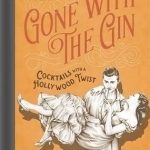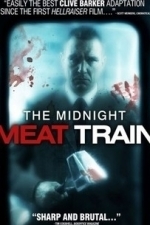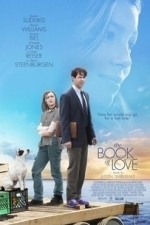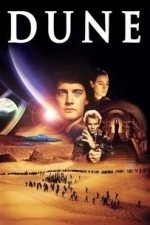Chris Sawin (602 KP) rated The Midnight Meat Train (2008) in Movies
Jun 19, 2019
The screenplay for the 2008 film was written by Jeff Buhler (writer for the 2019 remakes of Jacob’s Ladder, Pet Sematary, and The Grudge) and directed by Ryuhei Kitamura (Versus, Godzilla: Final Wars). Bradley Cooper stars as a struggling photographer named Leon Kauffman. While he’s secured a job as a photographer, he hasn’t been recognized as a professional just yet. But Leon has a meeting with a professional artist named Susan Hoff (Brooke Shields) that could potentially change his career status. In Leon’s eyes, he doesn’t think that any other photographer has really captured the heart of the city and that’s what he aims to do with his work. However, Susan’s criticism is that Leon is failing at his dream and to only see her again once he finds what he’s looking for.
Leon confronts some thugs during a mugging and documents the ordeal with his camera. The pictures impress Susan and she tells Leon that he’ll be featured in her next show if he brings her two more shots like the newest ones. Leon encounters Mahogany (Vinnie Jones), a butcher that works at a meat packing plant. Leon develops an obsession over Mahogany and stalks him constantly while photographing him wherever he goes. Leon suspects that Mahogany and the train he takes so late at night are the cause for so many missing people over the past three years. Leon doesn’t know how these people disappear until he follows Mahogany onto the train one fateful evening. But this operation is much more complex and dangerous than Leon first realized and his life is forever altered because of it.
This is one of the few times where the short story that inspired the film was read before seeing it. This is coming from someone who is a sporadic reader at best, but Clive Barker has been a personal favorite author for as long as this cynically bonkers brain can remember. Most of the films based on Clive Barker’s works come from The Books of Blood; Book of Blood (Volume One), Dread (Volume Two), Rawhead Rex (Volume Three), Quicksilver Highway (Volume Four, “The Body Politik”), Candyman (Volume Five, “The Forbidden”), and Lord of Illusions (Volume Six, “The Last Illusion”). Barker has always been able to build these incredibly terrifying worlds in his writing with demented characters while maintaining this richly horrifying atmosphere. Thinking so highly of Barker and admiring his work so much made expectations a little high for this film. This is also Ryuhei Kitamura’s first American and English-speaking film. The Midnight Meat Train is one of the few times where the final product actually exceeded expectations.
The Midnight Meat Train pays more attention to blood, gore, and thrills than actually attempting to be scary. The kills in the film are exceptional and director of photography Jonathan Sela (John Wick, Atomic Blonde, Deadpool 2) delivers some incredibly captivating cinematography. There’s a scene where Mahogany knocks a woman’s head off her shoulders with his mallet that he’s always carrying around, but you see it all from her perspective; she puts her hands up as a last defense before the final blow, the room spins, the camera focuses on Mahogany and the headless corpse, he lowers his mallet as she blinks a few times, and the camera pans out from her eyeball to show her severed head.
Vinnie Jones has an overwhelming and powerful performance in The Midnight Meat Train. He doesn’t have much in the way of dialogue, but he makes a massive impact on screen because of his enormous presence. The English actor is 6’2”, so you’re already drawn to this big guy when he enters a room anyway, but give him a gigantic meat mallet and a desire to kill and he evolves into this unstoppable monster that many would consider frightening. Jones knows how to utilize his facial expressions and body language in a way that says more than any string of dialogue would.
The one issue with the film is that every person seemed to be able to sense when somebody else was behind them. While it made for some intriguing camera shots, the execution killed whatever attempts at suspense The Midnight Meat Train was going for. It would have been more satisfying to see at least one person get shanked or clocked in the temple without expecting it.
The Midnight Meat Train is a relentless gorefest that remains true to its source material. The horror film is worth a watch for any fan of Clive Barker’s work or horror films in general. There was this sinking gut feeling that the film wouldn’t keep the ending in tact since it seemed like it wouldn’t translate well on-screen. Without giving too much away, the ending is completely satisfying to those who are familiar with the short story. This is a remarkably excellent horror film that fails to get the recognition it deserves.
The Midnight Meat Train is currently streaming on Amazon Prime, YouTube, and Google Play for $1.99, on Vudu for $2.99, and iTunes for $3.99. The Multi-Format Blu-ray (which is the unrated director’s cut version of the film) is currently $6.50 with prime shipping on Amazon Prime and the DVD is running for $9.99 with prime shipping. On eBay, the pre-owned DVD is $4.58, the brand new DVD is $8.49, and the new Multi-Format Blu-ray is $10.98 and all three have free shipping.
Darren (1599 KP) rated The Book Of Love (2017) in Movies
Jul 25, 2019
When Henry learns what Millie is planning, he decides to jump in and help her with the project to build a raft to sail across the Atlantic, this gives him a new lease for life, to help someone follow their dream.
Thoughts on The Book of Love
Characters – Henry Herschel is an architect on the verge of a big promotion to partner in the company, and a baby, his life however is turned upside down when his wife is killed in an accident. Filled with grief he meets teenager Millie who he helps with her project, taking his mind off his loss. Millie is a homeless teenager, well she is forced to live with her estranged Uncle and she wants to build a raft like in the journal she finds. She believes she is doing the right thing as she is dealing with own problems. Penny is Henry’s wife who even after her death gives him guiding light to help Millie. Julia is the mother-in-law wanting the best for Henry as her own way of dealing with the loss of her daughter.
Performances – Jason Sudeikis continues to show that he is delightful to watch in these drama-comedy roles, he shows enough grief and hope to make you believe that he has been the one to lose his wife. Maisie Williams is good for the most part, but she does struggle to maintain the accent through the film. Jessica Biel and Mary Steenburgen both give us good performances in the supporting roles.
Story – The story follows a grief ridden man that decides to help a teenager with her own problems in an attempt to cure his own problems only to there to help cure her problems. This does have sweet moments as we see how the lives have been turned upside down by their own tragic losses and the moments where they can help support each other, we do however deal with grief in a realistic way, being left empty in need of something to keep us going. The glaring problem is the repeating of the facts about people dying, we just don’t need this on repeat to get the point, as we know the focus on the story is, enjoy life however difficult moments have been.
Settings – The film is set-in small-town America, well the suburbs, which shows us how life can change in an instant in this world no matter who or where you are.
Scene of the Movie – Closing shot.
That Moment That Annoyed Me – Maisie Williams accent.
Final Thoughts – This is a charming movie that gets the message across well, we get to see just how grief can be processed by the people suffering from it.
Overall: One of the dreamers to see where people can make it.

Gone with the Gin: Cocktails with a Hollywood Twist
Book
Here's drinking with you, kid We know your type. You love the smell of napalm in the morning, you...

Pieter Hugo: Between the Devil and the Deep Blue Sea
Ralf Beil and Uta Ruhkamp
Book
Pieter Hugo's images are unflinching and unforgettable. Beginning with "Looking Aside," his series...

The 8th Army Air Force in Color: As Seen Through the Eyes of Kodak Film
Book
This book showcases a comprehensive catalogue of restored World War II colour Kodachrome slides....
The Namib Desert: Art. Structures. Colors.
Book
When you hear the word "desert," what do you think of? If you imagine more than just endless sand,...

Tar Wars: Oil, Environment and Alberta's Image
Book
Tar Wars offers a critical inside look at how leading image-makers negotiate escalating tensions...

Adaptation (2002)
Movie Watch
Director Spike Jonze delivers a stunningly original comedy that seamlessly blends fictional...
Stan Brakhage in Rolling Stock, 1980-1990
Book
Filmmaker Stan Brakhage has long been known as a giant of experimental cinema, but this collection...



